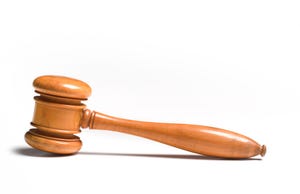User-Fee Increases May Prompt MDUFMA Reassessment
Originally Published MDDI September 2004NEWSTRENDSUser-Fee Increases May Prompt MDUFMA Reassessment
September 1, 2004
Originally Published MDDI September 2004
NEWSTRENDS
|
Table I. Fee types and FY 2004 and FY 2005 fee rates (click to enlarge). |
FDA's user-fee rates for premarket approvals (PMAs) are increasing by double digits again, despite the agency's delaying one rate adjustment. As a result, industry will be seeking changes to the user-fee agreement.
User fees for PMAs will rise 15.7% in FY05 to reach $239,237 for most applications and $90,910 for companies with annual revenues under $30 million. However, 510(k) user fees are rising less than 1% (see Table I).
The jump comes despite FDA's decision to put off including a “compensating adjustment” from FY04 user-fee revenue shortfalls until FY06 or FY07. The agency says the reason is that at that point, the exact amount of the shortfall will be known. Including the compensating adjustment in FY05 could have pushed the PMA fee increase above 30%, as it did for FY04.
Despite the temporary relief, both major industry trade associations decried the new fees as too high and vowed that changes will be made.
According to AdvaMed, the double-digit increase results from FDA's too-conservative estimate of the number of PMA applications to be filed in FY05. The agency is projecting 51, but AdvaMed projects more than 80. For FY03 and FY04, FDA had overestimated the number of PMA submissions.
“Our members, who have the best sense of the state of medical technology innovation, are telling us that the innovation pipeline is full,” said Pamela G. Bailey, AdvaMed's president. “The user-fee increase is excessive, given the positive outlook for innovation. Even if one-third of [our] projected applications do not materialize, a single-digit increase is still justified.”
The Medical Device Manufacturers Association said the rate of increase indicates that fundamental problems exist in the funding scheme, and that these problems need to be addressed by the industry.
“We appreciate FDA's effort to minimize the fee increase for FY05, but it is not empowered to deal with significant problems in the program,” said Mark Leahey, MDMA's executive director. “That's why we need to start working with Congress to make the necessary changes to sustain the program moving forward.”
A July 15 meeting between representatives of AdvaMed, MDMA, and FDA may have helped lay the groundwork for such a dialogue. At that session, FDA officials explained why such a fee increase is required, and the associations aired their short-term and long-term concerns.
Under terms of the Medical Device User Fee and Modernization Act of 2002, industry has the right to revisit the user-fee agreement if Congress fails to increase CDRH appropriations or if FDA fails to meet performance goals. The former happened in FY03 and FY04.
Leahey said MDMA would like to see alterations agreed to by the end of September 2004, since FY05 begins the following month. But he said that might be difficult because of the upcoming presidential election.
Specifically, MDMA has called for abolishing the “compensating” and “workload” adjustments, which adjust fees for one year based on revenue shortfalls or excessive workloads from previous years. “Unless modifications are made to eliminate [those], the industry is looking at a minimum of 20% increases for the next two years,” Leahey said. “By FY07, we will have PMA fees exceeding $350,000.”
Copyright ©2004 Medical Device & Diagnostic Industry
You May Also Like

.png?width=300&auto=webp&quality=80&disable=upscale)

